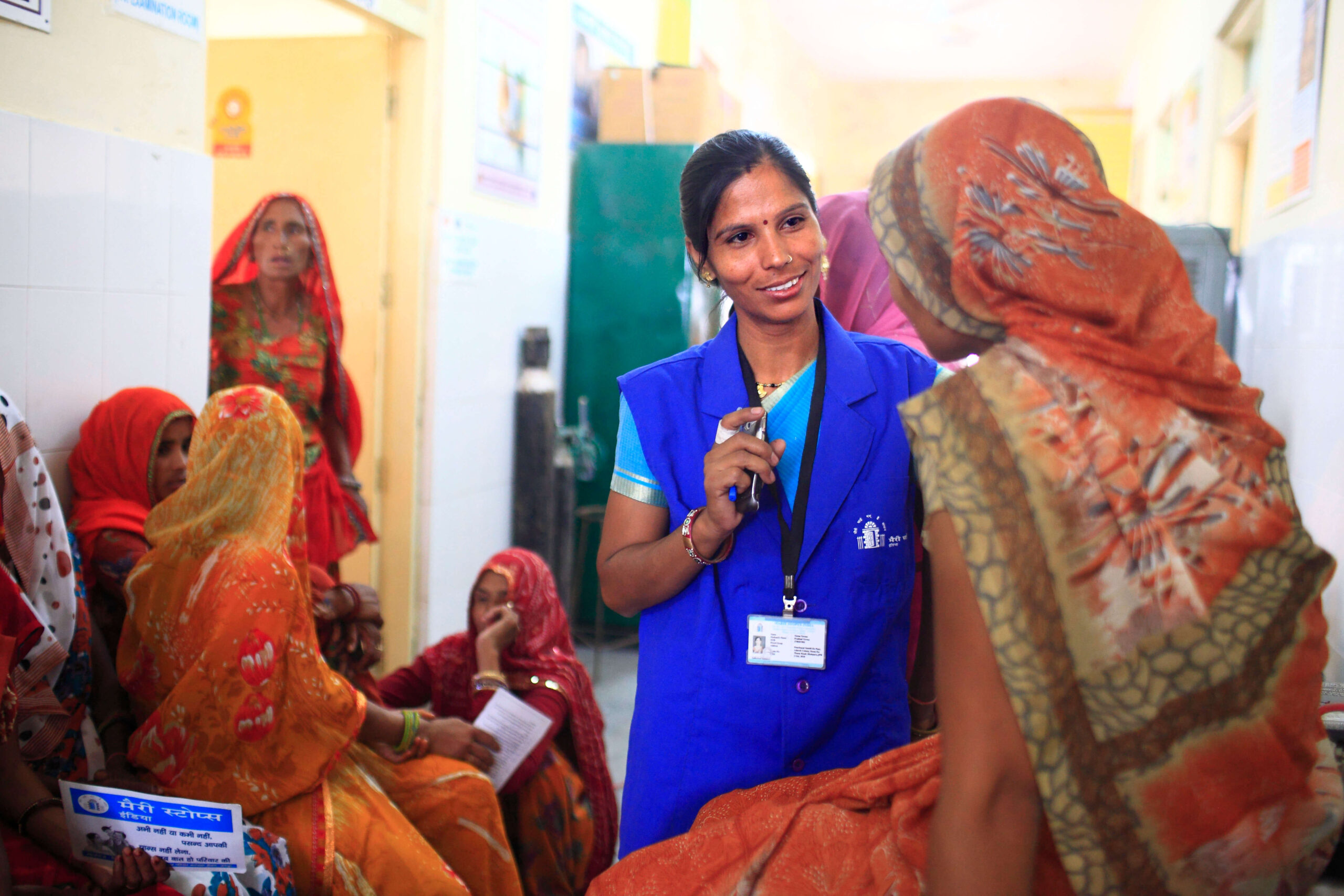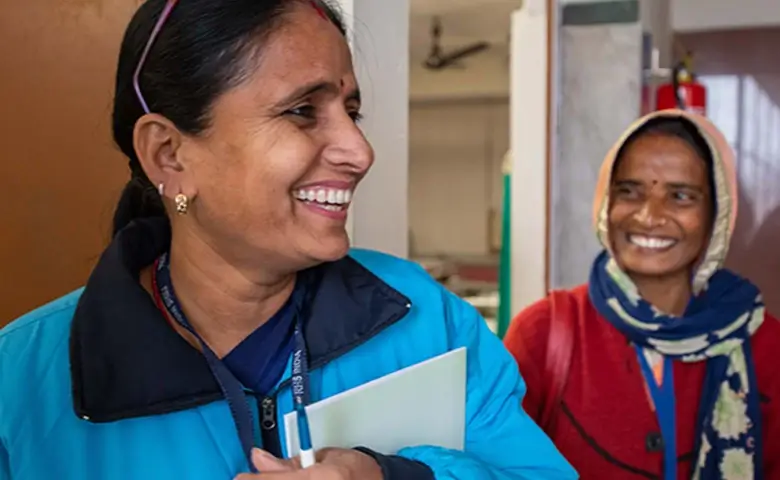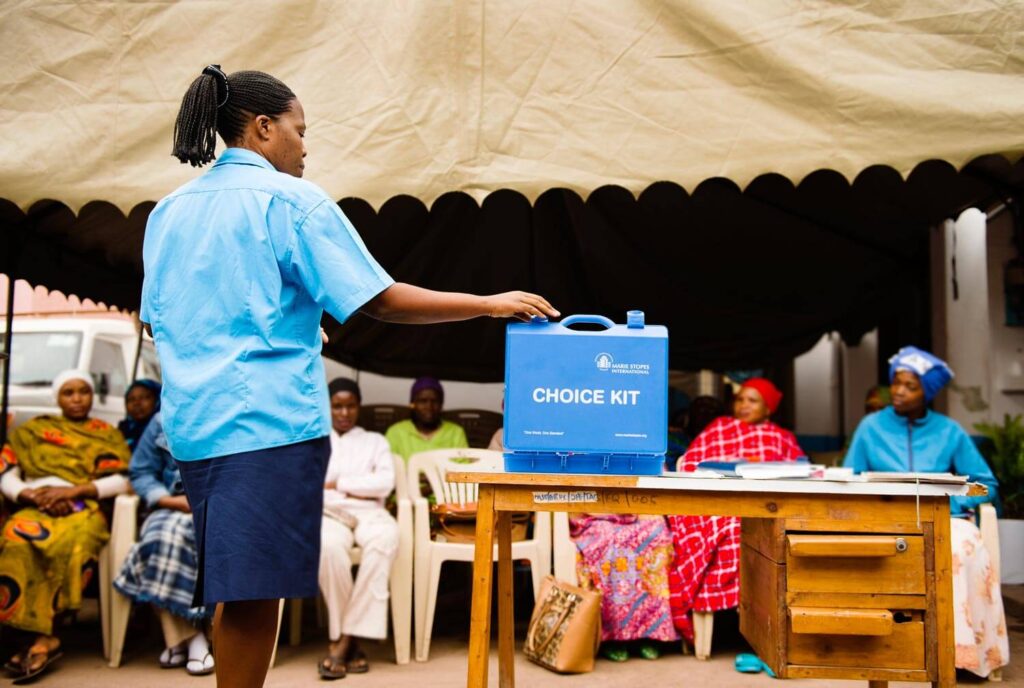
Governance and financial statements
We deliver life-saving and life-changing reproductive health services in 36 countries. These national programmes form our global MSI partnership.
MSI is a company limited by guarantee, incorporated and registered in England and Wales, and is also registered as a charity.
From our global support office in London, we support country programmes by setting the strategy, standards and policies for the global partnership. We provide technical assistance, research and monitoring, and we promote MSI and fundraise for our global services. Our focus is on creating the conditions that enable quality services, which are sustainable and support as many people as possible.
Our UK programme has a separate management structure, and provides abortion and other reproductive and sexual health services across UK clinics.
Our board
The MSI Board of Trustees makes decisions on the big challenges facing the partnership, including our strategic direction, clinical practices, policies and processes, financial management and institutional integrity. The board also has various subcommittees, for example the Audit Committee and Global Quality Governance Committee, that focus on priority areas.
The board is made up of individuals who are leaders in their field, committed to our mission. They bring skill, diversity, energy, and experience to MSI. Their backgrounds include senior experience in the commercial health sector, clinical and teaching experience in women’s reproductive health, leadership in the charity sector, business, government, and advocacy.
The executive team is responsible for implementing our strategy and the day-to-day operations that enable the partnership to meet its mission and goals. They are led by the Chief Executive Officer who reports to the Board of Trustees.
Terms of Reference for MSI International Clinical Governance Committee
Terms of Reference for MSI Audit Committee
Terms of Reference for MSI Finance Committee
Terms of Reference for MSI Remuneration Committee
Learn more about our individual board members and MSI leaders.
Our commitment to gender equality
As a healthcare provider and advocate for human rights, MSI recognises that gender inequality impacts an individual’s needs, choices and access to health information and services.
Understanding inequalities and the power relations that exist within families, communities and wider societies is essential to developing programmes that increase access to services, improve reproductive health outcomes and reduce stigma. We aspire to a gender transformative approach at every level of our operations.

Gender pay gap reporting
Gender equality is foundational to our mission, and we are fully committed to ensuring that there are no barriers or biases in place at MSI that deny equality of opportunity to women or any other group in society.
As an organisation, we remain committed to reducing the gender pay gap and are focused on supporting women into more senior leadership roles and making fundamental and sustainable changes to make MSI a more diverse and inclusive employer.
Our clinical governance
The quality of our services is fundamental to the safety and wellbeing of every single one of our clients. We set rigorous standards and have the following systems in place to check and maintain consistently high quality across all our international programmes. MSI’s Global Medical Development Team (MDT) are the experts overseeing this.
A quality audit covering a sample of service locations and teams within each country programme once a year. This is conducted by MDT, trained clinical quality staff from another programme, or MDT-approved external consultants.
These mirror the quality technical assistance and clinical audio-visual assessment process, but are conducted by internal country programme staff as a self-assessment. These are carried out at every single service delivery point once a year.
A senior leadership team within each country programme, led by the head of clinical services and including the country director. The Medical Advisory Team in each country programme meets once every quarter to discuss key issues related to clinical quality and client safety. The meetings follow a standard agenda and the minutes are sent to the Global MDT.
A standard report that captures key clinical quality and clinical governance indicators that each country programme is required to submit quarterly. The reports are compiled by the clinical service leads of each country programme and are submitted through internal reporting systems. The minutes of the last Medical Advisory Team meeting is submitted together with these reports.
All country programme service providers are expected to report clinical incidents in line with a standard reporting system. Incidents are categorised into ‘red’, ‘amber’, and ‘green’ based on severity. ‘Red’ or critical incidents are reported to the Medical Director within 24 hours of the incident.
‘Amber’ and ‘green’ incidents are reported to the senior management of each programme. Critical incidents are reviewed by a panel of Global MDT members and lessons shared across the partnership. ‘Amber’ and ‘green’ incidents are handled at country programme level. Incidents are a key item discussed during the Medical Advisory Team meetings.
All country programmes report product-related incidents to MDT. These incidents are investigated by the senior pharmaceutical adviser in collaboration with clinical leads and other MDT members. Corrective measures are taken and reporting to manufacturers done where needed. Learning is shared across the partnership.
This is a system that calculates estimated clinical risk within different channels based on service types provided, service numbers, and selected control indicators. With no extra data burden to country programmes, the system is able to highlight higher-risk channels by country, and allows MDT and Operations to recognise and mitigate potential sources of clinical risk.
A product quality assurance tool that allows MSI to confirm that ‘Key-SRH’ commodities in country programmes come from quality sources of established quality. The system requires country programmes to input information on selected drugs and other items on a regular basis.
These tools are expected in all country programmes:
– Incident management system and continuously updated incident database
– Clinical competency assessment database
– Clinical training database
– Continuous supportive supervision – registers as proof of functionality
– Quarterly clinical quality reports
– Quarterly Medical Advisory Team meetings
– Annual internal quality audits (using channel appropriate QTA checklist)
– Client record audits monthly at centres and by outreach teams
Our commitment to safeguarding
MSI believes that everyone has a right to live free from exploitation, abuse and harassment. We take our role as a frontline healthcare provider seriously, and have in place safeguarding measures designed to protect the safety and welfare of our clients, the communities in which we work, and the staff and partners who support our mission.
Our commitment to sustainability (UN Global Compact)
In March 2019, MSI Reproductive Choices became a participant of the UN Global Compact (UNGC) under our former name Marie Stopes International. Our latest Communication on Engagement was published in March 2023.
The UNGC is the world’s largest corporate sustainability initiative and aims to mobilise a global movement of companies and stakeholders to create a more sustainable world. It is a call to do business responsibly, by aligning strategies and operations with Ten Principles on human rights, labour, environment and anti-corruption, and to collaborate and innovate to advance broad societal goals such as the Sustainable Development Goals.
Our commitment to the UNGC will see us:
- Continue strengthening the implementation of our global policies relating to human rights, labour and anti-fraud, corruption and bribery, and maintain appropriate systems to minimise environmental damage
- Engage with the UN Global Compact Network UK and join working groups and platforms to explore how we can further develop our operational approach to the values and behaviours set out in the principles
- Vet suppliers and partners, and work with parties who have similar values to our own
Greener Goals: MSI’s Carbon Reduction Plan
The impact of carbon emissions on our environment is a global concern that requires immediate action. In line with global commitments to limit global warming, we have set out clear goals for the organisation’s road to carbon reduction.
The Carbon Reduction Plan meets the UK government’s requirement that its major suppliers contribute towards national 2050 net zero targets. It measures emissions from energy directly purchased by MSI (gas and electricity), as well as some emissions generated externally but incurred through our operations. By reducing our emissions from energy use, distribution and travel, we will contribute towards a safer, greener global future.
Code of Conduct
MSI’s Code of Conduct outlines organisational and team member commitments to professional ethics, client care, and building an inclusive organisational culture which promotes equality of opportunity. MSI expects all programmes and team members to work with honesty and integrity, upholding existing commitments to safeguarding, data-protection, anti-modern slavery and anti-fraud and bribery, including a requirement to declare any personal or other close relationships and conflicts of interest.
MSI also expects its business partners to share its ethical and business principles, and to promote these principles to their suppliers, sub-contractors, and business partners. Read more in MSI’s Code of Conduct for Business Partners.

Our financial statements
Our services give millions of women the ability to choose their own reproductive healthcare and futures every year. To make sure we’re there for women in the long term, it’s essential we remain focused on operational efficiency. We make sure every pound and dollar goes as far as possible.
Our annual reports and financial statements set out our impact and how we’re building a sustainable social business to support as many people as possible with quality reproductive healthcare.






